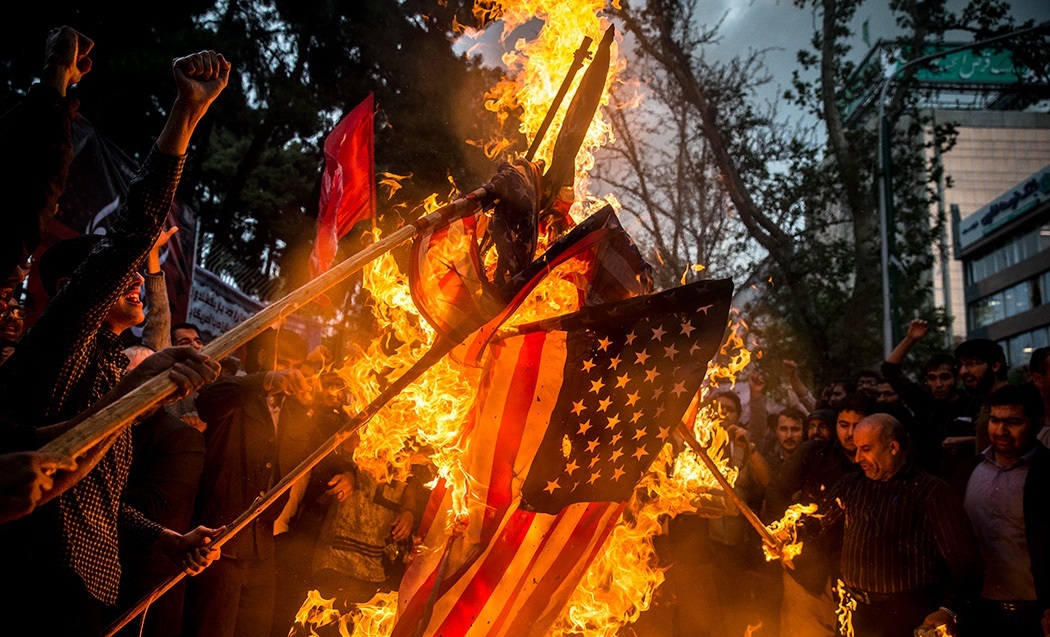Home » Posts tagged 'iran' (Page 14)
Tag Archives: iran
“No Talks, Only Resistance”: Iran’s Rouhani Slams Door On Trump’s “Call Me” Overture
“No Talks, Only Resistance”: Iran’s Rouhani Slams Door On Trump’s “Call Me” Overture
At a moment the US Navy conducted provocative military exercises in the Arabian Sea on Monday, Iran’s president responded to overtures by Trump that Tehran should “call me” with a firm line of, “No talks, only resistance.”
US military statements highlighted the Arabian Sea drills were specifically in response to heightened unspecified threats from Iran, and were led by the USS Abraham Lincoln Carrier Strike Group and the US Marine Corps to highlight American “lethality and agility to respond to threat” and to advance US security.
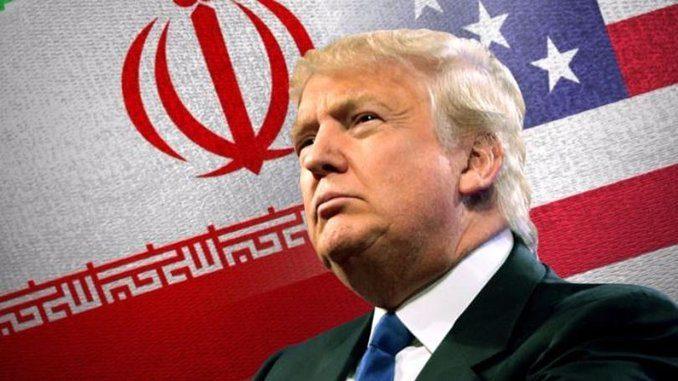
Iran’s President Hassan Rouhani, who oversaw the 2015 nuclear deal negotiations (JCPOA) with then president Obama, said he welcomed any US diplomatic overture but wouldn’t be coerced into new negotiations under economic sanctions and threat of military action.
“I favor talks and diplomacy but under current conditions, I do not accept it, as today’s situation is not suitable for talks and our choice is resistance only,” Rouhani said, according to Iran’s IRNA news agency.
“If we walked away from the JCPOA [Joint Comprehensive Plan of Action – the formal name of the nuclear deal] with the US provocative acts, then, in addition to the US, the UN and world would also impose sanctions on us,” he said.
It appears Trump has taken a “North Korea-style” approach to Iran that combines unpredictably aggressive threats and maneuvers – especially by other White House officials – with unexpected moments of reaching out a hand.
That tactic was certainly on display Monday when Trump expressed US willingness to meet any Iranian action against US interests with “great force” – yet followed it by saying it’s up to Iran to initiate conciliatory dialogue: “If they call, we will certainly negotiate, but this is going to be up to them,” he told reporters.
…click on the above link to read the rest of the article…
Exxon Evacuates All Foreign Staff From Iraqi Oilfield On Security Concerns
Exxon Evacuates All Foreign Staff From Iraqi Oilfield On Security Concerns
At the end of a week that’s witnessed a dangerous US military build-up in the Persian Gulf amid anti-Iran war rhetoric, Exxon Mobil has evacuated all of its foreign staff from Iraq’s West Qurna 1 oilfield, flying them to Dubai until “the situation is secure,” according to a company statement.
Total staff evacuated is about 60, cites Reuters, and comes days after the US ordered all non-emergency personnel to leave the US embassy in Baghdad in an extremely rare security move, claiming intelligence that shows Americans are under immediate threat from Shia milias backed by Iran. Oil field in southern Iraq, via Iraq’s Ministry of Oil
Iraq’s state-owned South Oil Company, which owns the oil field from which the Exxon Mobil employees have been evacuated, announced Saturday that production is continuing without disruption at 440,000 barrels per day (bpd) under the operation of Iraqi engineers.
“Exxon Mobil’s evacuation is a precautionary and temporary measure. We have no indication over any dangers, the situation is secure and very stable at the oilfield which is running at full capacity and producing 440,000 bpd,” a South Oil spokesman said.
And Exxon Mobile in a separate company press release said, “ExxonMobil has programs and measures in place to provide security to protect its people, operations and facilities. We are committed to ensuring the safety of our employees and contractors at all of our facilities around the world.”
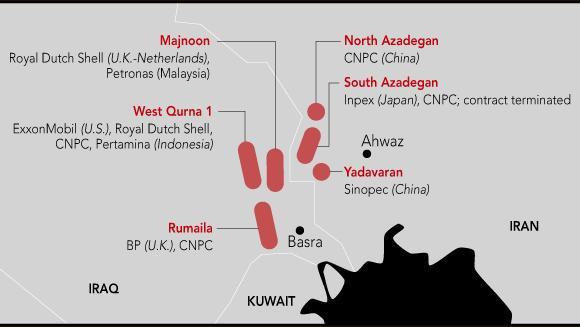
The evacuation was reportedly completed early on Saturday in phases which had started on Friday: “Last night 28 employees were evacuated to the airport and the rest were sent to the camp. This morning they were evacuated to the airport and no (foreign) staff remain in the field,” according to a security firm which oversaw their emergency departure.
…click on the above link to read the rest of the article…
Iraqi Parliament Poised to Evict US Troops
Iraqi Parliament Poised to Evict US Troops
Talk of US attacking Iran has many Iraqi officials keen to get rid of them.
Iraq has spent the better share of the last 16 years under US military occupation. Despite this, time and again US-Iraqi relations have come to be defined by US hostility toward neighboring Iran, and Iraq’s desire to not get mixed up in that.
So while Iraq’s parliament was already bristling under Pentagon talk of staying in Iraq, and Trump saying that the US was staying in Iraq to “keep an eye on Iran,” the recent escalation of US rhetoric about a war against Iran has sparked action within parliament.
On Saturday, Iraq will be voting on a bill that would aim to expel all foreign troops from Iraqi soil, and singles out US troops in particular as needing to leave. The bill is endorsed by Iraq’s top two Shi’ite blocs, and is expected to pass fairly easily.
What happens then is the real question. Iraq’s parliament is already being spun as “pro-Iran factions,” and it’s been a long time since US officials, Pentagon or otherwise, gave any indication that they thought staying in Iraq was up to the Iraqi government.
So while the Iraqi Prime Minister is warning the US that they can’t use Iraq to launch a war on Iran, the US is browbeating Iraq over its government-aligned Shi’ite militias, and doing everything they can to try to portray that Shi’ite-dominated Iraqi government as effectively in league with the Iranians, and subsequently a threat to US interests. No matter what happens, it seems certain US-Iraqi ties will suffer for it.
Top Iran Commander Invokes 9/11 To Say US Is “Frail”; A “Full Intelligence War” Is On
Top Iran Commander Invokes 9/11 To Say US Is “Frail”; A “Full Intelligence War” Is On
lran is currently in “a full intelligence war” with the United States, according to statements by the head of Iran’s Revolutionary Guards, Major General Hossein Salami on Saturday.
“We are in a full intelligence war with the United States and the enemies of the Islamic Republic. This war is a combination of psychological warfare, cyber operations, military operations, diplomacy, fear, and intimidation,” Salami, who became head of Iran’s elite military force last moth, was quoted as saying by Fars news agency. He further noted Americans in the region face “great risks” at this point. “America has lost its power, and even though they look powerful, they are frail,” he said. The recently appointed head of the elite IRGC, Major General Hossein Salami.
But what’s most likely to capture the West’s attention is his invoking the 9/11 terror attacks: “In reality America’s story is the same as the story of the World Trade Center that collapsed suddenly with one strike,” he said, using the example both as a threat and to claim the mighty US empire can be brought to its knees with one strategic blow.
His combative statements came days after he said provocatively that the IRGC stood on the “cusp of a full-scale confrontation with the enemy.” In that prior address , Salami notified his forces, “This moment in history, because the enemy has stepped into the field of confrontation with us with all the possible capacity, is the most decisive moment of the Islamic revolution,” according to Fars.
Washington has already deployed the USS Abraham Lincoln carrier strike group and new Patriot missiles, along with a B-52 bomber group to the Persian Gulf region, but Saudi Arabia and other gulf states this weekend have reportedly agreed to host American forces “at sea and on land to deter Iran” according to a new report in Israeli media, citing Arabic sources:
…click on the above link to read the rest of the article…
Saudis Claim Iran Ordered Aramco Pipeline Drone Attack
Saudis Claim Iran Ordered Aramco Pipeline Drone Attack
Saudi Arabia on Thursday blamed Iran for ordering an attack early this week on two Aramco pipeline booster stations, a strike that was intended as part of a broader sabotage campaign to disrupt world oil supplies, according to Saudi Energy Minister Khalid al-Falih.
The drone attacks came one day after a string of attacks on two Saudi oil tankers and two other vessels in the Strait of Hormuz, and caused the temporary closure of a vital east-west pipeline traversing the kingdom, since reopened. Image source: Reuters
Prince Khalid Bin Salman, the vice minister for defense and brother of the crown prince MbS, described Yemen’s Houthis – which were believed to have launched the drone attack – of being used as an “Iranian” tool advancing Tehran’s aggression and hegemony in the region.
In a tweet, he said the Houthi militias “are merely a tool that Iran’s regime uses to implement its expansionist agenda in the region, and not to protect the people of Yemen as the Houthis falsely claim”.
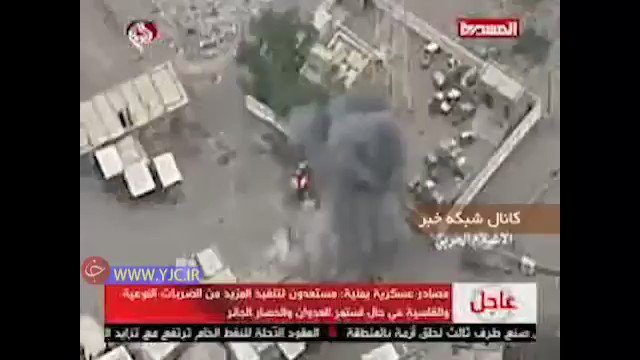

#BREAKING Saudi Arabia confirmed that militants, probably Iranian backed Houthi militants, sent booby-trapped drones targeting #Aramco‘s two oil pumping stations in Dawadmi and Afif provinces in #Riyadh, amid the tension between #US and Iran
Since 2015 Saudi coalition jets have been waging a brutal bombing campaign over Yemen to roll back the country’s Shia Houthi rebels, the latter which have occasionally launched missile and drone attacks against sensitive sites in the kingdom, at times even reaching Riyadh’s international airport with ballistic missiles.
…click on the above link to read the rest of the article…
Top British Commander In Rare Public Dispute With US Over Iran Intelligence
Top British Commander In Rare Public Dispute With US Over Iran Intelligence
An awkward public exchange unfolded between the US military and its closest allied military coalition force during a Pentagon press conference on Tuesday wherein a top British commander in charge of anti-ISIS coalition forces rebuked White House claims on the heightened Iran threat.
“No – there’s been no increased threat from Iranian-backed forces in Iraq and Syria,” British Army Maj. Gen. Christopher Ghika, a deputy head of the US-led coalition, asserted confidently in a videolink briefing from Baghdad to the Pentagon in response to a CNN question. “We’re aware of that presence, clearly. And we monitor them along with a whole range of others because that’s the environment we’re in. We are monitoring the Shia militia groups. I think you’re referring to carefully and if the threat level seems to go up then we’ll raise our force protection measures accordingly.”British Army Maj. Gen. Christopher Ghika during the Pentagon briefing Tuesday. screenshot via OIR/US Army
The British commander’s words prompted a rare and swift rebuke from the US side hours later into the evening when US Central Command (CENTCOM) issued its own statement slamming Gen. Ghika’s words as inaccurate, insisting coalition troops in Iraq and Syria were an a “high level of alert” due to the “Iran threat”.
“Recent comments from OIR’s deputy commander run counter to the identified credible threats available to intelligence from US and allies regarding Iranian-backed forces in the region,” the CENTCOM statement said.
“US Central Command, in coordination with OIR, has increased the force posture level for all service members assigned to OIR in Iraq and Syria. As a result, OIR is now at a high level of alert as we continue to closely monitor credible and possibly imminent threats to US forces in Iraq.”
With the US-Iran War Ball Now Rolling, Could an “Accident” or “False Flag” Serve as Pretext?
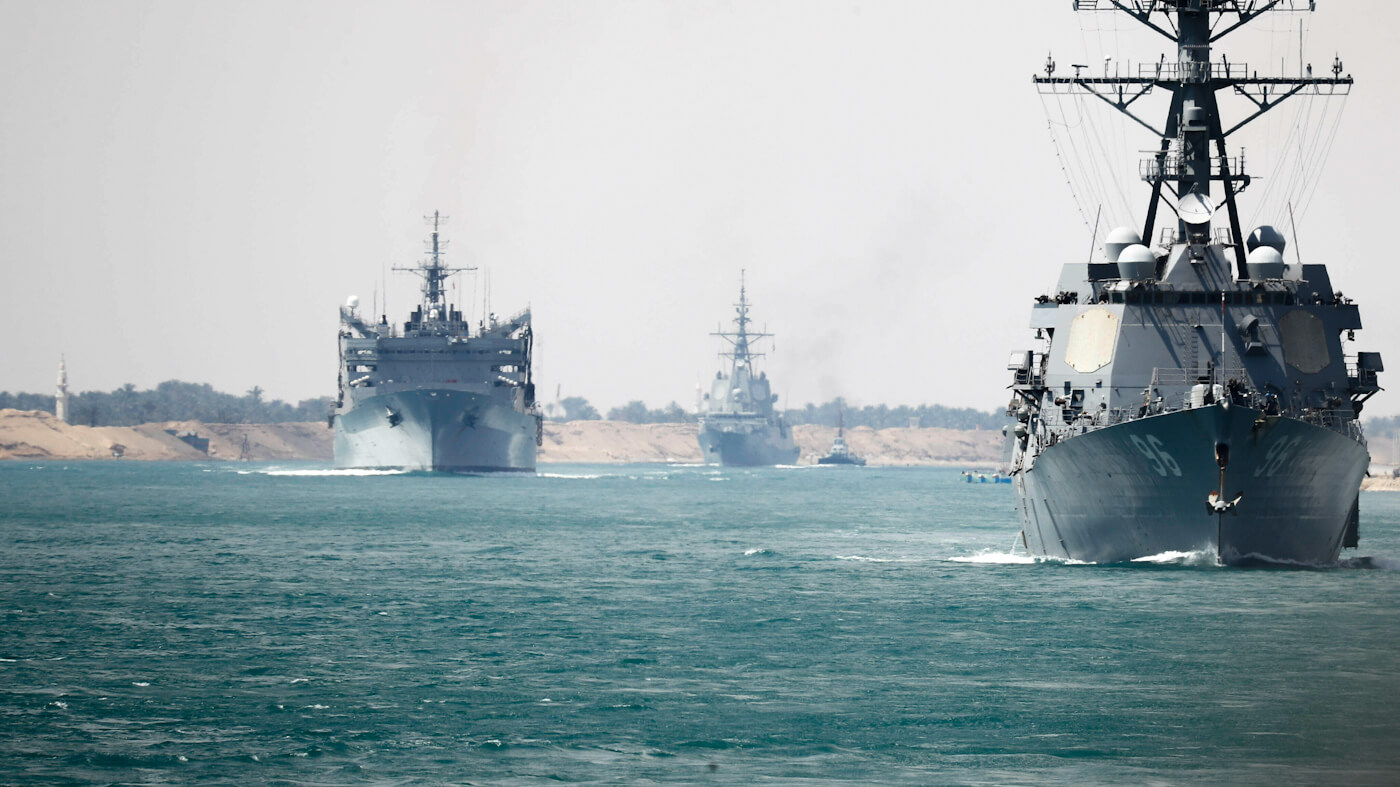
With the US-Iran War Ball Now Rolling, Could an “Accident” or “False Flag” Serve as Pretext?
Certain forces in the U.S. and Israel have been actively pushing for war with Iran for years and have a track record that demonstrates little inhibition about using an “accident” to start it.
As tensions between the U.S. and Iran threaten to boil over, the probability of a provocation or “accident” that would provoke hostilities between the two countries is higher than ever. U.K. Foreign Minister Jeremy Hunt, after meeting with U.S. Secretary of State Mike Pompeo, openly stated as much on Monday, telling reporters in Brussels that the U.K. was worried of a conflict breaking out between the U.S. and Iran by “accident with an escalation that is unintended really on either side but ends with some kind of conflict.”
Yet, current and past events make it clear that such an “accidental” provocation is unlikely to be purely accidental in nature, as forces in the U.S. and Israel have been actively pushing for a U.S.-led war with Iran for years and have a track record that demonstrates little inhibition about using an “accident” or “false flag” to drag the country into a war with the Islamic Republic.
Notably, the state of Israel — in an event long since buried by the government and corporate media — has previously staged such a “false flag” by targeting an American naval vessel, killing 34 Americans, in order to blame the attack on Egypt and drag the U.S. into a war with several Middle Eastern nations in 1967. However, Israel is not alone in this, as the CIA as well as neo-conservatives serving in the Bush administration, led by then-Vice President Dick Cheney, have planned “false flags” that involved the murder of American servicemen and civilians in order to justify miltiary action against U.S. adversaries.
…click on the above link to read the rest of the article…
Leaked Pentagon Plan Calls For 120,000 Troops To Counter Iran
Leaked Pentagon Plan Calls For 120,000 Troops To Counter Iran
As Michael Pompeo travels to Brussels to discuss the Iranian threat amid a flare-up in tensions that has brought the US to the brink of an armed conflict, the New York Times has published details from a confidential military plan presented to top national security officials that envisions sending as many as 120,000 troops to the Middle East should Iran attack American forces or start ramping up work on nuclear weapons (something it has promised to do if its European partners don’t meet their commitments under the Iran deal).
Though the revised plan – it had been modified to incorporate suggestions from John Bolton – doesn’t include plans for a land invasion, it does reflect “the influence of Mr. Bolton, one of the administration’s most virulent Iran hawks, whose push for confrontation with Tehran was ignored more than a decade ago by President George W Bush.”
It’s unclear whether Trump himself has seen, or been briefed on, the plan. Asked about it, Trump said “we’ll see what happens with Iran. If they do anything, it would be a very bad mistake.”
Here are a few key details from the plan according to more than a half-dozen senior administration officials who spoke with the NYT:
- The 120,000 troops called for in the plan would be close to the size of the force that invaded Iraq in 2003. The reversal of the US troop presence in the region under Obama and Trump has reportedly emboldened leaders in Tehran and the IRGC that there’s no appetite in the US for a war with Iran. Deploying this many troops would take weeks or months.
…click on the above link to read the rest of the article…
Four B-52 Bombers Deployed To Deter “Possible Attack” By Iran
Four B-52 Bombers Deployed To Deter “Possible Attack” By Iran
The deployment of American military assets to the Middle East continues to ramp up following national security advisor John Bolton’s Sunday night statements warning the US is prepared to send “a clear and unmistakable message to the Iranian regime”.
Citing “possible attack by Iran” against US troops in the region, four B-52 bombers are now on their way to the Middle East as part of Sunday’s announced USS Abraham Lincoln carrier strike group deployment.
According to details revealed by CBS News:
Two of the bombers are expected to leave Tuesday from Barksdale Air Force Base in Louisiana, arriving at Al Udeid Air Base in Qatar on Wednesday, CBS News national security correspondent David Martin reports.
B-52H Stratofortress, via The National Interest
The White House house had previously warned of “a number of troubling and escalatory indications and warnings” from Iran, for which Bolton said the US was prepared to use “unrelenting force”..
“The United States is not seeking war with the Iranian regime, but we are fully prepared to respond to any attack, whether by proxy, the Islamic Revolutionary Guard Corps, or regular Iranian forces,” Bolton said previously as part of his Sunday statements.
On Monday Axios published a report by Israeli correspondent Barak Ravid which identified Israel as behind the intelligence warning the White House appears to be basing its information on.
“Israel passed information on an alleged Iranian plot to attack U.S. interests in the Gulf to the U.S. before national security adviser John Bolton threatened Iran with ‘unrelenting force’ last night, senior Israeli officials told me,” Ravid wrote in the Axios report.
…click on the above link to read the rest of the article…
Iran Expected To “Go Nuclear” By Breaching Parts Of JCPOA, Europe Warns
Iran Expected To “Go Nuclear” By Breaching Parts Of JCPOA, Europe Warns
Iran is expected to go nuclear, by backing out of some of the terms of the 2015 nuclear deal (JCPOA), at a sensitive time when Washington appears to be ramping up military readiness in response to what the White House says are credible threats against US assets in the Middle East by the Iranian regime.
Simply put, the European Union is not capable of facing US sanctions, and despite some meager past efforts, such as the attempt to establish a ‘SWIFT alternative,’ EU initiatives to salvage the deal have been too little too late, as Iran has already hinted to some European officials. Image via CNN
According to a new report in The Wall Street Journal Monday:
European diplomats warned Monday that Iran is preparing to abandon parts of a landmark nuclear deal in response to new U.S. sanctions, a step that risks inflaming tensions after the Trump administration dispatched warships to the Persian Gulf to deter potential Iranian attacks.
The WSJ likens it to a “partial withdrawal” after other international signatories such as France and China tried to keep the deal alive following Trump’s ordered US withdrawal last May.
Middle East based war reporter Elijah Magnier reports that Iran’s leaders “seem convinced that the only way to stand against the US sanctions is to go nuclear, gradually, pulling out from the Nuclear deal as the US unilaterally did.” He said “President Hassan Rouhani is expected to announce an important step this week.”
It appears the thinking in Tehran is that any future negotiation with the Trump administration are useless and pointless so long as White House rhetoric remains so aggressive, including the weeks ago formal terror designation of Iran’s Islamic Revolutionary Guard Corps (IRGC), widely seen as a potential precursor to war.
…click on the above link to read the rest of the article…
$1 Billion In Iranian Crude Is Stranded At A Chinese Port
$1 Billion In Iranian Crude Is Stranded At A Chinese Port
It’s no secret that Beijing has chafed at American audacity to try and dictate whom Chinese refineries can and can’t buy oil from. And in the latest example of just how aggravating the decision to end waivers for Iranian crude imports has been for the world’s second-largest economy, Reuters reported that some 20 million barrels of Iranian crude have been languishing at the northeastern port of Dalian for months, but because of the US’s decision to re-impose sanctions on Iran back in November, nobody wants to touch the oil.
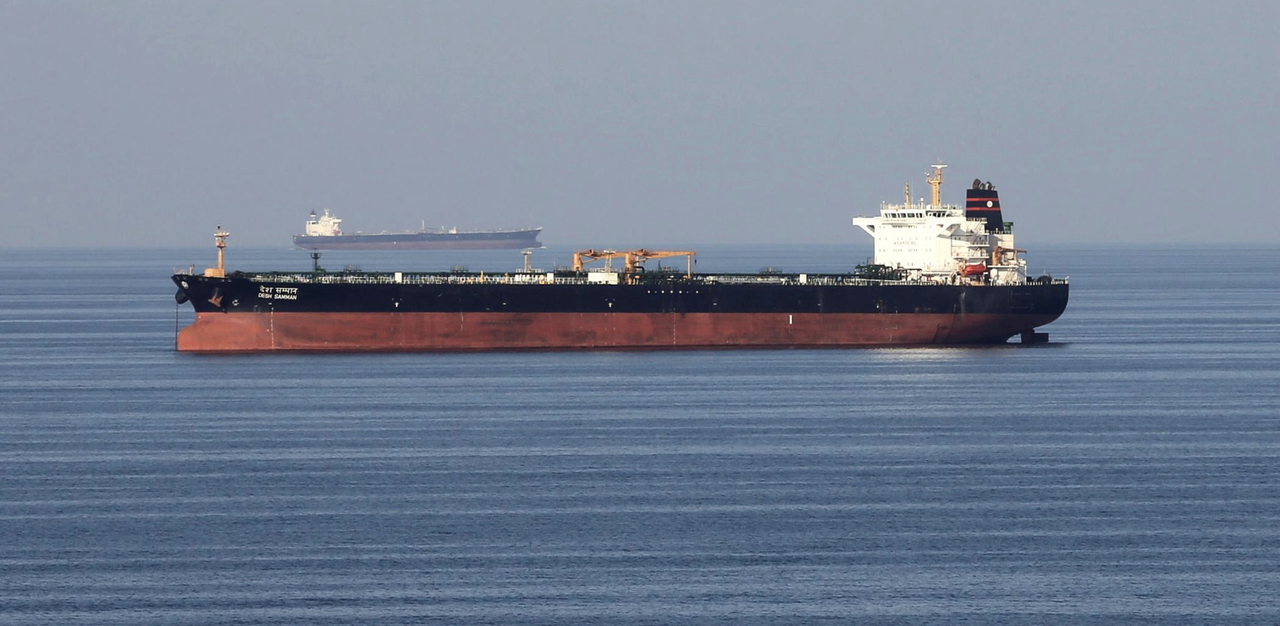
Even when the waivers were in effect, Chinese refineries couldn’t secure financing and insurance that would allow them to purchase the oil because of the uncertainty surrounding the future of the waivers.
Iran sent the oil to China via the National Iranian Tanker Company before the sanctions were imposed as Iran struggled with a backlog of oil that had exhausted the country’s domestic storage capacity. So Beijing, the largest buyer of Iranian oil, allowed the NTCC to store some oil in so-called bonded storage tanks situated in the Dalian port. The oil has yet to go through Chinese customs.
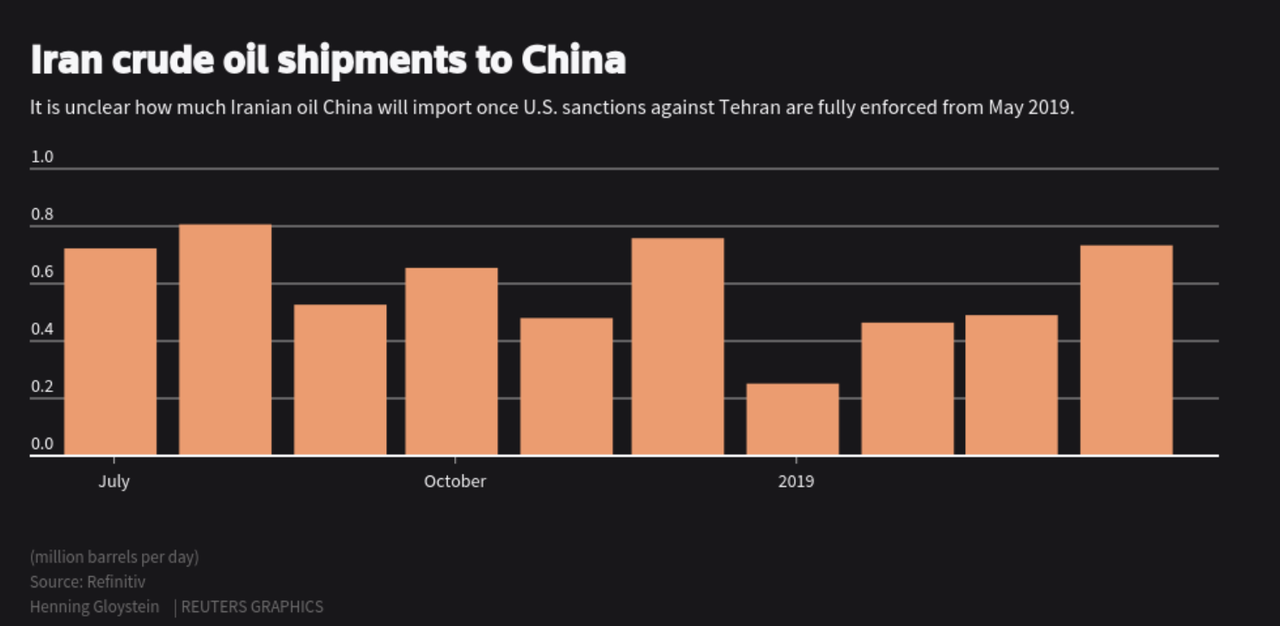
China filed a formal complaint with the US over its decision to end the waivers, but the US has refused to consider any exceptions to its plans to reimpose full sanctions.
As one analyst told Reuters, no Chinese company will touch the oil unless specifically instructed to do so by the Chinese government.
The oil is being held in so-called bonded storage tanks at the port, which means it has yet to clear Chinese customs. Despite a six-month waiver to the start of May that allowed China to continue some Iranian imports, shipping data shows little of this oil has been moved.
…click on the above link to read the rest of the article…
A New Mega Cartel Is Emerging In Oil Markets
A New Mega Cartel Is Emerging In Oil Markets

China and India—two of the world’s largest oil importers and the biggest demand growth centers globally—are close to setting up an oil buyers’ club to have a say in the pricing and sourcing of crude oil amid OPEC’s cuts and U.S. sanctions on Iran and Venezuela, Indian outlet livemint reports, citing three officials with knowledge of the talks.
This is not the first time that the two major oil importers are working to create such an oil club.
India and China have discussed creating an ‘oil buyers’ club’ to be able to negotiate better prices with oil exporting countries and will be looking to import more U.S. crude oil in order to reduce OPEC’s sway, both over the global oil market and over prices, India’s Petroleum Ministry said in June 2018.
“With oil producers’ cartel OPEC playing havoc with prices, India discussed with China the possibility of forming an ‘oil buyers club’ that can negotiate better terms with sellers as well as getting more US crude oil to cut dominance of the oil block,” a tweet from the Petroleum Ministry’s Twitter account said in the middle of last year, when oil prices were rising ahead of the return of the U.S. sanctions on Iran’s oil industry.
According to the officials cited by livemint, China and India have exchanged senior-level visits several times since then and have made progress on “joint sourcing of crude oil.” Related: Massive Drop In U.S. Oil Rig Count Fails To Arrest Price Slide
Reports of the strengthened Chinese-Indian cooperation in potentially forming an oil buyers’ club come just as the U.S. sanction waivers for all Iranian oil customers expire this week.
…click on the above link to read the rest of the article…
19 Historical Oil Disruptions, And How No.20 Will Shock Markets
19 Historical Oil Disruptions, And How No.20 Will Shock Markets

Albert Einstein once wrote that “the definition of insanity is doing the same thing over and over again and expecting different results.” Were he alive today, he would be repeating the line to anyone who would listen, especially the reporters on cable news channels such as CNBC. He might add that the world’s policymakers always approach oil market disruptions in the same way: predicting there will be no impact on prices.
Einstein would then point out that the policymakers are consistently wrong. A hefty price boost has followed every disruption.
The world has experienced nineteen oil market disruptions over the last forty years. In a paper published in March 2018, I chronicled these events and noted that the maximum price increase was predictable. Last Monday, Secretary of State Mike Pompeo initiated the twentieth disruption. The consequences are projected here.
Start, though, with the energy policy insanity. In each of the disruptions since 1973, I have noted the following regarding government officials.
State Department representatives always say something like “the US Department of State remains in contact with our partners to reduce the risk of supply disruptions. There is sufficient oil supply in the global markets that countries can access.”
OPEC officials always spout some version of “the oil market remains well-supplied, with the recent price driven by geopolitics, not fundamentals.”
Nothing has changed. Last week Reuters offered this quote from the State Department’s Brian Hook, the person running the Iran sanctions program:
“There’s roughly a million barrels per day (bpd) of Iranian crude (exports) left, and there is plenty of supply in the market to ease that transition and maintain stable prices,” said Brian Hook, U.S. Special Representative for Iran and Senior Policy Advisor to the Secretary of State, speaking in a call with reporters.
…click on the above link to read the rest of the article…
Why An OPEC Oil Supply Surge Won’t Happen
Why An OPEC Oil Supply Surge Won’t Happen

The end of the Iranian sanction waivers by the Trump Administration has put oil traders on edge.
While most analysts are optimistic about OPEC leader Saudi Arabia being able to fill the gap left by lower Iranian oil exports, reality could be totally different. Looking at the ongoing discussions between OPEC’s two key members, Saudi Arabia and the UAE, there are no real signs that the Kingdom of Oil will be willing to increase its overall oil production to keep prices at the pump low in oil importing nations.
The real crux at present is what the market will do when, on the 2nd of May, the Iran sanction waivers end. History has shown that oil importers are very well equipped to take mitigating measures to counter the effects of the Iran sanctions. Saudi Arabia, and others, will have to be very careful to stabilize the market without falling into a Trumpian trap, which could result in an oversupply situation in the short term.
At present, all signs point to higher oil prices. If no real additional oil is brought onto the market, shortages will become visible within months. Statements made by U.S. president Trump and U.S. Secretary of State Mike Pompeo that Saudi Arabia and the UAE will add supplies to counter the loss of Iranian volumes are currently only wishful thinking, and not based on any hard promises from Riyadh or Abu Dhabi.
OPEC’s leaders are in a powerful position to react to Trump’s calls for additional volumes and lower prices as they wish. Washington’s strategy may well have backfired, as U.S. shale will not be able to supply the markets with the necessary crude grades. At the same time, national oil companies are willing to take a backseat, as long as OPEC+ production cuts are in place.
…click on the above link to read the rest of the article…


